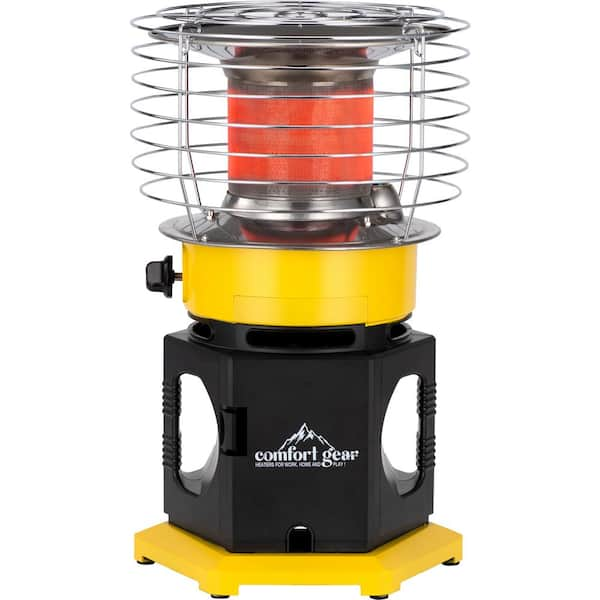Propane Heater for Large Spaces in Warehouses and Outdoor Work Areas
Save Money and Power With Portable Heater Rental Solutions
The enhancing demand for flexible home heating services has actually led lots of organizations to consider portable heater rental choices as a tactical method to power efficiency and price financial savings. These leasings not only alleviate the considerable initial investments usually connected with irreversible home heating systems but likewise supply the newest innovations customized to specific heating needs.
Benefits of Portable Heating Unit Rentals

Additionally, portable heating unit leasings remove the burden of upkeep and fixing costs related to possessing heating equipment. Rental companies typically offer normal maintenance and support, guaranteeing that the devices operate successfully and securely. This not only saves time however also boosts integrity, which is essential for preserving a comfortable setting.
In addition, renting portable heaters supplies access to the most current innovation and energy-efficient designs without the in advance investment. This allows customers to take advantage of improvements in home heating solutions, which can cause enhanced power financial savings and decreased ecological impact.
Cost Contrast of Heating Choices
Reviewing the price of various home heating choices is crucial for making informed choices that straighten with budgetary restrictions and particular heating demands. When contrasting standard heating unit, such as main heating or electrical wall heaters, the first installation expenses and continuous energy costs can be considerable. Central heating unit usually need a significant upfront financial investment, along with maintenance costs that can accumulate with time.
In comparison, mobile heaters offer a more cost-efficient and versatile remedy. The rental model permits customers to prevent large resources expenses related to purchasing tools. Rental expenses typically consist of maintenance and support, which can further reduce the financial problem. Mobile heaters can be released only when needed, minimizing power waste throughout idle periods.
Another element to consider is the operational costs. While some portable heating units may have higher per-hour power prices, their targeted heating capabilities can lead to total financial savings by heating certain locations as opposed to a whole structure. This targeted technique can significantly reduce energy expenses, specifically in scenarios where only a part of an area requires home heating. Ultimately, a complete cost contrast of heating choices is important for maximizing both financial and energy resources.
Energy Performance of Portable Heaters
While many customers prioritize in advance expenses when picking home heating options, energy performance plays a crucial function in determining lasting financial savings and ecological impact. Portable heating systems, developed for targeted home heating, commonly supply a much more efficient choice to main home heating systems, decreasing power usage substantially.
The efficiency of portable heating systems is commonly measured by their power output about power input. Versions with higher power efficiency scores convert even more power into warmth, taking full advantage of heat while minimizing energy waste. For example, electrical infrared heaters can provide heat directly to objects and people, rather than heating the air, resulting in anchor reduced energy usage and faster home heating times.

In addition, many mobile heaters come outfitted with energy-saving features such as programmable thermostats and timers, making it possible for customers to enhance home heating routines based upon occupancy patterns. By utilizing mobile heating systems selectively in occupied areas, customers can prevent home heating unoccupied spaces, bring about additional power savings.
Selecting the Right Portable Heater
Choosing the ideal portable heating unit involves comprehending various aspects that straighten with individual heating demands and choices. Analyze the room that calls for heating. Various heating units are created for differing area sizes; for example, a little electrical heating unit may be enough for a personal workplace, while a bigger lp heating system may be necessary for an extensive garage.
Following, take into consideration the heater type. Electric heating units are generally convenient and straightforward, while propane choices supply greater movement and can be utilized in areas without electric outlets. a fantastic read In addition, evaluate the heater's power efficiency ratings, as greater efficiency can result in significant expense savings over time.
Security features are also crucial; search for versions outfitted with automated shut-off systems, tip-over security, and cool-to-the-touch surfaces. Temporary Heating for Events.
Tips for Successful Rental Experience
A successful rental experience rests on thorough preparation and clear communication. Begin by examining your home heating needs, consisting of the size of the area, the duration of service, and the certain features called for. Having a clear understanding of these aspects will allow you to choose the most suitable mobile heater.
Following, connect your needs to the rental firm. Review your expectations concerning upkeep, delivery, and arrangement. A credible rental copyright will provide support and assistance throughout the procedure, guaranteeing you get the ideal devices for your demands.
Before the rental duration, evaluate the heater to guarantee it remains in excellent working problem. Acquaint on your own with its procedure and safety functions, which can avoid mishaps during use. Develop a timeline for the leasing, including pick-up and return days, to avoid added fees.
Finally, keep open lines of interaction with the rental business. If any type of issues occur throughout the rental period, resolving them promptly can cause fast resolutions and improve your overall experience. By adhering to these pointers, you can make sure a adequate and seamless portable heater rental experience, eventually saving both money and time.
Final Thought
Finally, portable heating unit rental services provide a strategic technique for organizations seeking to enhance home heating prices and power consumption. By leveraging the advantages of adaptability, minimized first financial investment, and access to advanced models, organizations can successfully meet their home heating demands. The incorporation of upkeep and support services enhances dependability while decreasing financial commitments associated with possession. Eventually, these solutions add to a much more sustainable and economically practical home heating method for varied operational requirements.

In verdict, mobile heating unit rental options present a strategic approach for services looking for to maximize heating expenses and power intake.